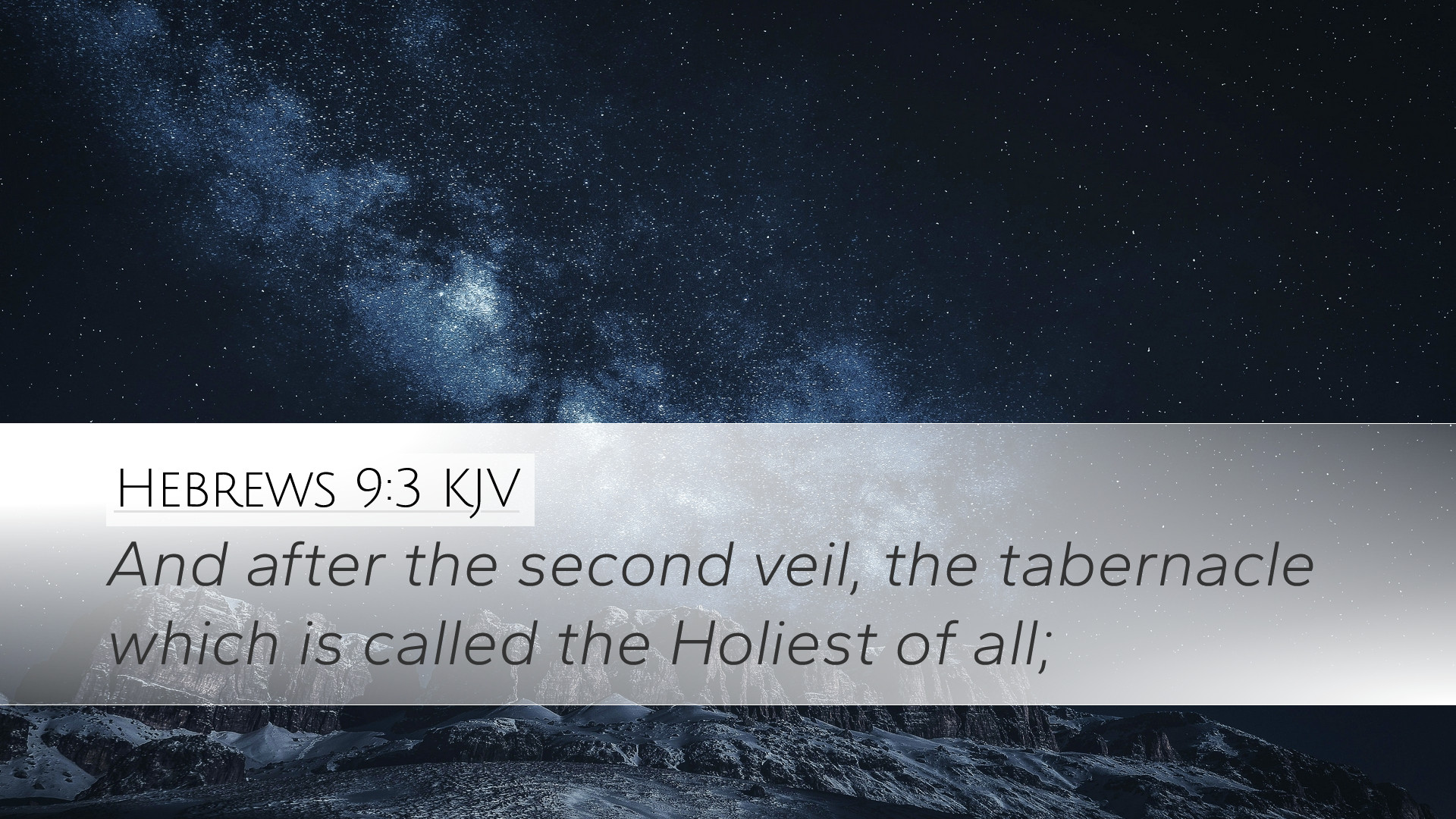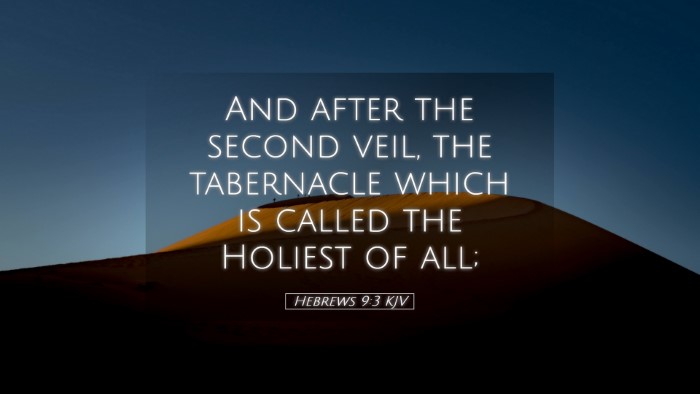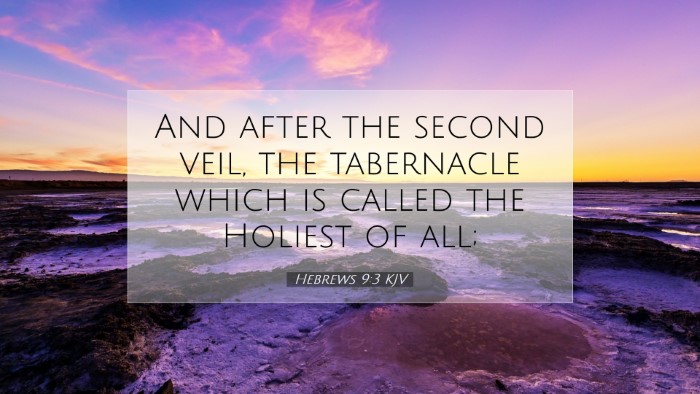Hebrews 9:3 Commentary
Verse Reference: Hebrews 9:3
"But into the second went the high priest alone once every year, not without blood, which he offered for himself, and for the errors of the people."
Introduction
The verse in question is pivotal within the context of the Epistle to the Hebrews, providing profound insights into the sacrificial system of the Old Covenant and its typological significance in light of Christ’s atoning work. The discussion here draws extensively from commentaries by Matthew Henry, Albert Barnes, and Adam Clarke, emphasizing theological consequences and pastoral applications.
Contextual Analysis
The author of Hebrews is addressing Jewish Christians, elucidating the superiority of Christ’s priesthood compared to the Levitical priesthood. This chapter distinctly contrasts the earthly tabernacle and rituals with the heavenly realities fulfilled in Christ.
Structure of the Tabernacle
In verses leading to Hebrews 9:3, the author describes the furnishings and rituals of the tabernacle. The reference to "the second" room being entered only by the high priest once a year aligns with the Day of Atonement, emphasizing both exclusivity and sacredness.
The High Priest's Role
Matthew Henry conveys that the high priest's solitary entrance into the Holy of Holies symbolizes the unique role Christ plays as our ultimate High Priest. Unlike the Levitical priests, who required continual sacrifices, Christ's sacrifice was once for all (Hebrews 7:27).
- Solitary Entrance: Adam Clarke remarks that this highlights the separateness and sanctity of the divine presence. The high priest's loneliness in this act underscores the seriousness of approaching God.
- Annual Timing: Albert Barnes notes that the high priest's annual entry signifies that access to God was limited and dependent on a system that pointed to the need for a more perfect sacrifice.
The Function of Blood Sacrifice
The mention of blood is crucial to understanding the text. The high priest entered the Holy of Holies with blood, emphasizing the necessity of atonement for sin. According to Henry, this practice illustrates the gravity of sin and the dire need for reconciliation with God.
Theological Implications of Blood
Blood represents life (Leviticus 17:11), and its role in sacrifice is a recurring theme throughout Scripture. The author of Hebrews emphasizes that without shedding of blood, there is no remission of sin (Hebrews 9:22). Clarke elaborates on how this principle points to the ultimate sacrifice of Christ, whose blood secures eternal redemption.
Errors of the People
Henry identifies the term "errors" as representative of unintentional sins, linking to both individual and collective aspects of sin. The high priest's sacrifice underscores the need for atonement not only for himself but for the people, highlighting the communal nature of sin and grace.
- Recognition of Sin: Barnes explains that these errors necessitate acknowledgment and repentance, showcasing the belief that the sacrifices were not merely ritualistic but deeply relational.
- Implication for Ministry: Pastors are reminded through this text of their call to acknowledge the reality of sin within their congregations, facilitating healing through confession and repentance.
Conclusion
Hebrews 9:3 serves as a powerful reminder of the limitations of the Old Covenant practices compared to the new covenant in Christ. This text elucidates fundamental doctrines regarding the nature of sin, atonement, and Christ's mediatorial role. As pastors, students, and scholars reflect on this passage, they are encouraged to grasp its implications for worship, repentance, and the understanding of God’s holiness.
Final Reflection
As we meditate on Hebrews 9:3, let it lead us towards a greater appreciation for the blood of Christ, which speaks a better word than the blood of Abel (Hebrews 12:24). May we approach the throne of grace with confidence, rooted in the understanding that our High Priest has secured access for us, leading us into a deeper relationship with God.


